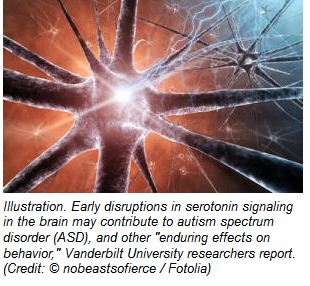Novel Mouse Model for Autism Yields Clues to a 50-Year-Old Mystery
[Source: Science Daily]

Early disruptions in serotonin signaling in the brain may contribute to autism spectrum disorder (ASD), and other “enduring effects on behavior,” Vanderbilt University researchers report.
Serotonin is a brain chemical that carries signals across the synapse, or gap between nerve cells. The supply of serotonin is regulated by the serotonin transporter (SERT). In 2005, a team of Vanderbilt researchers led by Randy Blakely and James Sutcliffe identified rare genetic variations in children with ASD that disrupt SERT function.
In a new study published this week in the Proceedings of the National Academy of Sciences (PNAS), the researchers report the creation of a mouse model that expressed the most common of these variations.
Read the Rest of this Article on Science Daily.com
PediaStaff is Hiring!
All JobsPediaStaff hires pediatric and school-based professionals nationwide for contract assignments of 2 to 12 months. We also help clinics, hospitals, schools, and home health agencies to find and hire these professionals directly. We work with Speech-Language Pathologists, Occupational and Physical Therapists, School Psychologists, and others in pediatric therapy and education.
